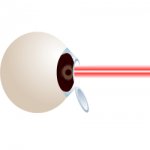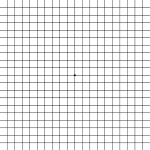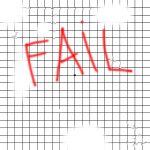Welcome to Laser Pointer Forums - discuss green laser pointers, blue laser pointers, and all types of lasers
Buy Site Supporter Role (remove some ads) | LPF Donations
Links below open in new window
FrozenGate by Avery
Navigation
Install the app
How to install the app on iOS
Follow along with the video below to see how to install our site as a web app on your home screen.
Note: This feature may not be available in some browsers.
More options

You are using an out of date browser. It may not display this or other websites correctly.
You should upgrade or use an alternative browser.
You should upgrade or use an alternative browser.
Laser damage symptoms
- Thread starter Droyd
- Start date


- Joined
- Jan 20, 2008
- Messages
- 1,724
- Points
- 0
Go see an optometrist. No one can diagnose your eyes over the internet.
Symptoms can include eye fatigue, headaches, nausea, blurred vision or dark spots.. It's really pretty impossible to diagnose though without looking at your eyes under a special microscope type device.
If you took a direct hit from a laser you MUST get your eyes checked out by a professional. Often these things can take time to develop, you may not notice the problems until it's too late.
Also, invest in some certified goggles. Seriously, insurance companies typically value the use of your eyes at $10,000,000... If you can't spare $50-$100 to protect them you shouldn't be playing with lasers in the first place.
Symptoms can include eye fatigue, headaches, nausea, blurred vision or dark spots.. It's really pretty impossible to diagnose though without looking at your eyes under a special microscope type device.
If you took a direct hit from a laser you MUST get your eyes checked out by a professional. Often these things can take time to develop, you may not notice the problems until it's too late.
Also, invest in some certified goggles. Seriously, insurance companies typically value the use of your eyes at $10,000,000... If you can't spare $50-$100 to protect them you shouldn't be playing with lasers in the first place.
dr-ebert
0
- Joined
- Mar 8, 2009
- Messages
- 710
- Points
- 0
That's more likely a symptom for staring at a computer monitor for too long.Droyd said:Is blurry vision and tired eyes a symptom?
- Joined
- Nov 7, 2008
- Messages
- 5,725
- Points
- 0
While it is true that no one can diagnose you over the internet, there is a test which will reveal localized vision loss (such as that which is due to lasers): Google the term "amsler grid" under images.
To use an Amsler grid, cover one eye and look at the dot in the middle of the grid with the other. If you can see the entire grid, and there are no missing portions or wavy lines, you pass. Otherwise, contact an optometrist to get a more precise diagnosis.
Repeat with the other eye.
To use an Amsler grid, cover one eye and look at the dot in the middle of the grid with the other. If you can see the entire grid, and there are no missing portions or wavy lines, you pass. Otherwise, contact an optometrist to get a more precise diagnosis.
Repeat with the other eye.
The Amsler grid test will not reveal laser damage, unless a very large area has been affected by the laser. It will, however, let you know whether you are about to experience retinal detachment, and whether you have any gaping holes in your retina. Except for high powered lasers, however, you will only have smallish holes in your retina, and the test is not sensitive to those.
If you need a "quick" test while you're waiting for your appointment, check out your reading speed. For people who are used to reading, that will be far more sensitive than most of the suggestions I've seen floating around. Blinking will also tend to reveal blind spots, particularly if they are recent. Fixating on a point on a wall and slowly scanning a cheap, low-power (<5mW) red laser along the wall will also detect some blind spots, but only if you're able to fixate on a point and simply ignore the laser with your eyes while paying attention with your mind. You will find the location and size of the optic nerve blind spot, at the very least (or else you're doing something horribly wrong).
None of these are reliable, though. A professional evaluation is needed.
Barring that, reading speed is as close as it gets, I think.
Usual disclaimers apply, of course.
If you need a "quick" test while you're waiting for your appointment, check out your reading speed. For people who are used to reading, that will be far more sensitive than most of the suggestions I've seen floating around. Blinking will also tend to reveal blind spots, particularly if they are recent. Fixating on a point on a wall and slowly scanning a cheap, low-power (<5mW) red laser along the wall will also detect some blind spots, but only if you're able to fixate on a point and simply ignore the laser with your eyes while paying attention with your mind. You will find the location and size of the optic nerve blind spot, at the very least (or else you're doing something horribly wrong).
None of these are reliable, though. A professional evaluation is needed.
Barring that, reading speed is as close as it gets, I think.
Usual disclaimers apply, of course.
- Joined
- Nov 7, 2008
- Messages
- 5,725
- Points
- 0
suiraM said:[highlight]The Amsler grid test will not reveal laser damage, unless a very large area has been affected by the laser. It will, however, let you know whether you are about to experience retinal detachment, and whether you have any gaping holes in your retina. Except for high powered lasers, however, you will only have smallish holes in your retina, and the test is not sensitive to those.[/highlight]
If you need a "quick" test while you're waiting for your appointment, check out your reading speed. For people who are used to reading, that will be far more sensitive than most of the suggestions I've seen floating around. Blinking will also tend to reveal blind spots, particularly if they are recent. Fixating on a point on a wall and slowly scanning a cheap, low-power (<5mW) red laser along the wall will also detect some blind spots, but only if you're able to fixate on a point and simply ignore the laser with your eyes while paying attention with your mind. You will find the location and size of the optic nerve blind spot, at the very least (or else you're doing something horribly wrong).
None of these are reliable, though. A professional evaluation is needed.
Barring that, reading speed is as close as it gets, I think.
Usual disclaimers apply, of course.
What's your source on this data? The amsler grid was referred to me by my wife's optometrist as a quick way to detect retinal damage, including that which is caused by lasers. At no point did he mention that it is dependent on the amount or size of the damage (although I'd imagine any test is a little dependent on these factors).
D
Deleted member 8382
Guest
That's more likely a symptom for staring at a computer monitor for too long.dr-ebert said:[quote author=Droyd link=1240358791/0#0 date=1240358790]Is blurry vision and tired eyes a symptom?
[/quote]
so owned
- Joined
- Jun 11, 2009
- Messages
- 1,252
- Points
- 63
Benm
0
- Joined
- Aug 16, 2007
- Messages
- 7,896
- Points
- 113
The amsler grid was referred to me by my wife's optometrist as a quick way to detect retinal damage, including that which is caused by lasers. At no point did he mention that it is dependent on the amount or size of the damage (although I'd imagine any test is a little dependent on these factors).
Any test is dependant on the degree of defect. Very small defects even occur naturally sometimes and the brain will compensate to some degree.
If you were to have a small retinal defect as caused by a laser shining into you eye, it could very well be so small that you never notice. You could perhaps compare it to a dead pixel in a camera, with one marked difference:
A dead pixel on a screen stands out once you know is there, but your brain and eye will do the exact opposite. Brain plasticity can compensate for pretty big defects, at least to a degree where you will not notice them during normal activity. The grid test is an aid in forcing you to notice the defect, but it has to be alarmingly large to work.
One downside of the grid is in its regularity: the brain will assume the lines are straight and continuous even if the information from the eye is slightly off. I think you'd have to have lost an area the size of several of those little squares before its apparant.
- Joined
- Apr 29, 2007
- Messages
- 1,076
- Points
- 0
I recently went to the retinologist to have my eyes checked out for liability on my job. The way they test for blind spots is to have you looking into a screen with one eye closed. While looking at a dot in the center, a small dot appears somewhere else on the screen and you need to push a button when you see it. It appears all over the place and if your vision is perfect, you only miss one dot due to the natural blind spot.
Additionally they take pictures of your retina when your eye is dilated to get a baseline reading of any damage. This allows you to have a record of if any damage to the eyes occurred at work.
Additionally they take pictures of your retina when your eye is dilated to get a baseline reading of any damage. This allows you to have a record of if any damage to the eyes occurred at work.
Benm
0
- Joined
- Aug 16, 2007
- Messages
- 7,896
- Points
- 113
Thats a much better test than staring at a grid - at least it depends on your eye actually seeing the spot or not. The maculascopy is the proof though, that will reveal defects small enough to go unnoticed in regular life.
For laser users its still the question of what can be done if any damage is found - treatment options will likely be very limited for localized damage, other than ingesting some compounds that would almost be a vialbe preventative measure in the first place.
For laser users its still the question of what can be done if any damage is found - treatment options will likely be very limited for localized damage, other than ingesting some compounds that would almost be a vialbe preventative measure in the first place.
- Joined
- Feb 9, 2011
- Messages
- 12
- Points
- 0
OMG so I did the 5mw laser against the wall with one eye test. I found a HUGE blindspot and started freaking out. Then I tested my other eye, it was in the SAME SPOT symmetrically!!!
I almost began freaking out, I started researching it on the internet and found out that EVERYBODY has a huge gaping hole of a blind spot in each eye.
Very relieved but also very interesting. Here's an article and test that proves it...
Blind spots
I almost began freaking out, I started researching it on the internet and found out that EVERYBODY has a huge gaping hole of a blind spot in each eye.
Very relieved but also very interesting. Here's an article and test that proves it...
Blind spots
- Joined
- Jul 17, 2010
- Messages
- 2,160
- Points
- 0
This thread is from 2009. Please don't Necro-Post.
- Joined
- Jun 30, 2008
- Messages
- 1,660
- Points
- 48
Before


After

Yep good test. First pic being a butterfly and second one a jaguar classic.





